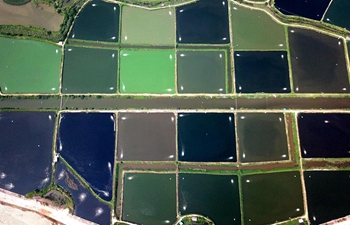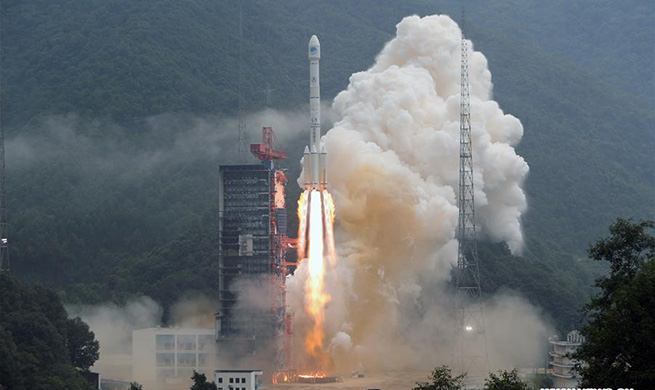CARACAS, Aug. 24 (Xinhua) -- The recent measures taken by the Venezuelan government to stabilize the economy will lead to a more productive economy, a Venezuelan economist said on Thursday.
The measures, including issuing new banknotes that dropped five zeros from the inflation-hit currency on Monday, are needed to wean the economy off its reliance on oil exports, independent economist Vladimir Adrianza Salas said.
They will eventually lead to the introduction of a convertible currency not associated with oil output, he said.
"This represents the first step in a process that will lead to more goods and services in Venezuela," Adrianza said.
He called the move to stabilize the devalued currency the right one, as well as the government's decision to peg the new sovereign bolivar's value to Venezuela's cryptocurrency, the petro.
"Unifying exchange rates, (the currency's) link to the petro and the international price of oil, along with weekly currency auctions ... will stabilize the value of the Venezuelan currency," Adrianza said.
Venezuela's economy has suffered from shortages, hoarding and price gouging amid the power struggle between the socialist government and the conservative opposition, which has led to rampant inflation.
While the latest official inflation figures are not available, the central bank reported the 2016 inflation rate to be 274.4 percent. According to economists at the International Monetary Fund, inflation this year could top 1 million percent.
The sovereign bolivar is part of the government's economic recovery program to tackle inflation and overcome U.S. financial sanctions.
Exchange rate measures adopted by the government will permit the domestic market to adjust to international oil prices, which will in turn curb a booming business in fuel smuggling, Adrianza said.
Smugglers buy Venezuela's cheap subsidized fuel and sell it for much more across the border, costing the country between 14 and 18 billion U.S. dollars a year, he said.
The risk remains that those benefiting from the economic crisis -- namely, Venezuela's conservative opposition, which is looking to return to power -- could try to undermine the economic recovery measures.
"The national government and the Venezuelan people must be vigilant to take corrective action as soon as needed," he said.
According to Adrianza, due to U.S. interests, Venezuela has been saddled for more than 100 years with an economic model that makes it dependent on outside help.
Venezuela is "a nation that exports oil and a few other raw materials and almost literally imports everything else necessary for life," he said, stressing the need to diversify production and trade ties.
Venezuelan President Nicolas Maduro recently announced state oil company PDVSA will deal in the petro, a move Adrianza backs, saying it will help to move away from the U.S. dollar while shoring up the cryptocurrency.
Venezuela should also tax excessive income, he said.
"The profit margins Venezuela's private companies generated through the economic warfare against Venezuela are unacceptable and not seen in any other country," he said.

















